
Sarcasm, Irony, Satire, and Parody English Literary Devices Middle school english language
irony — the expression of one's meaning by using language that normally signifies the opposite, typically for humorous or emphatic effect sarcasm — the use of irony to mock or convey contempt In most of the arguments I hear about the words, neither of these definitions seem to match the definitions proposed by anyone.

Sarcasm vs. Satire Sarcasm simplistic use of irony in order to insult someone else (no implicit
People tend to confuse irony with sarcasm and consider satire as a synonym but there are clear differences that set them apart. Irony occurs when something opposite to the expected outcome transpires. It is the incongruity between what happens and what is expected. Sarcasm is something similar.
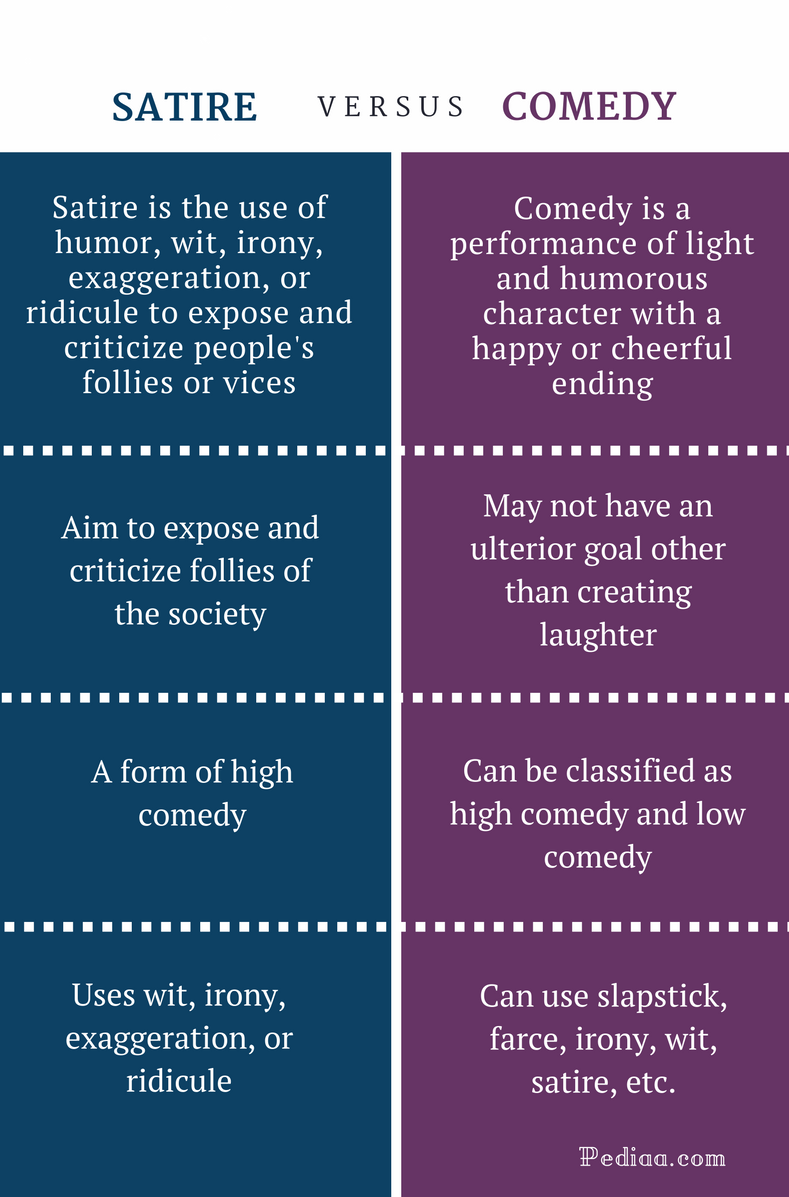
Difference Between Satire and Comedy Definition, Types, Goals, Features
Satire is usually prepared and lengthy. For example, the fake news site The Onion is satire because its staff members carefully prepare each article to make fun of a particular subject. On the other hand, sarcasm is usually off-the-cuff and short.
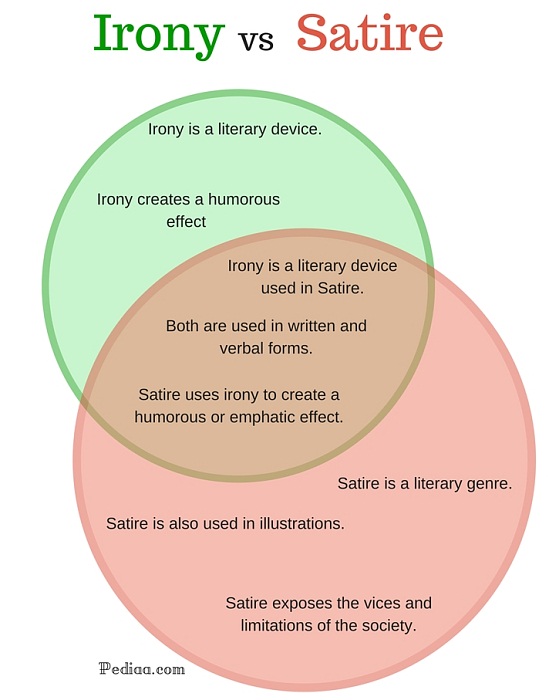
Difference Between Satire and Irony
This often causes confusion among people on whether to use irony, satire, or sarcasm to describe a particular statement or situation. Today, we will clarify the differences between these three words to keep your writing free from confusing points. The term irony is used as a noun referring to "the expression of one's meaning by using
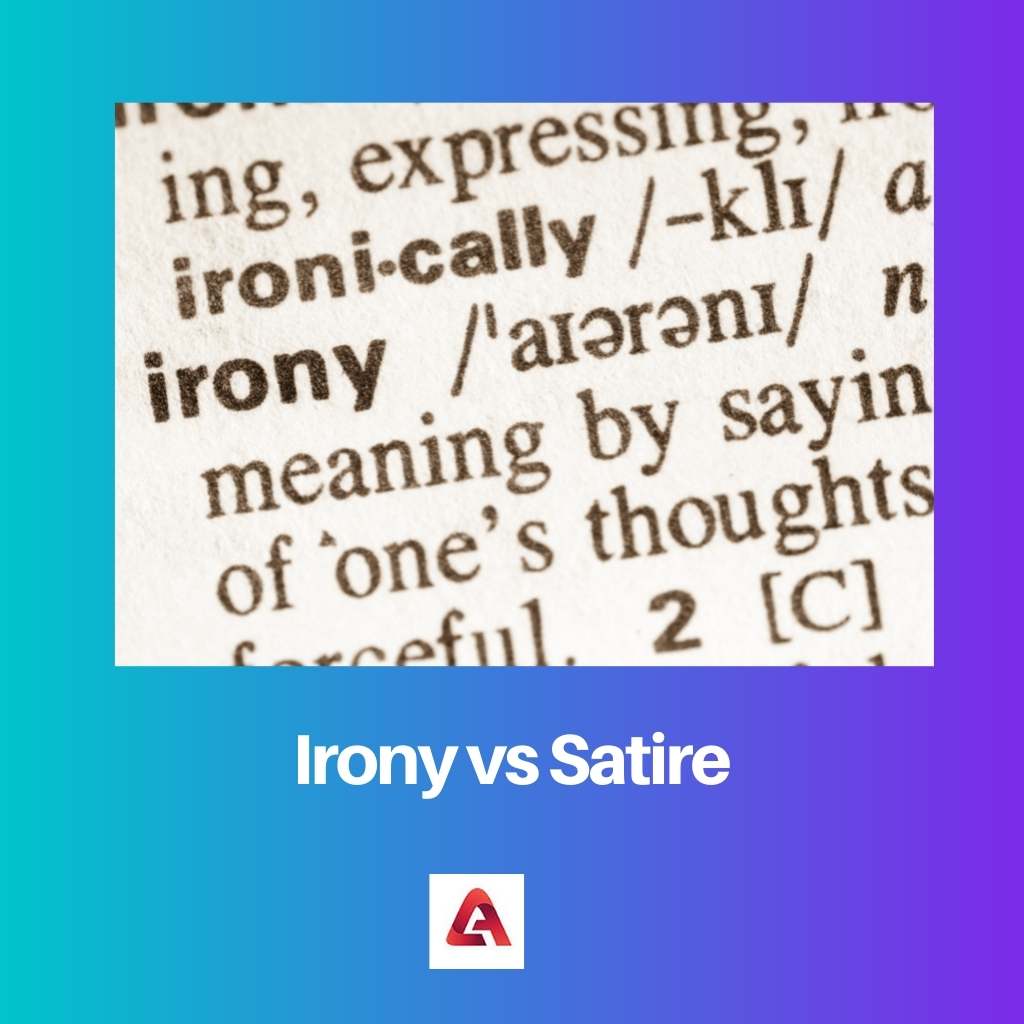
Irony vs Satire Difference and Comparison
There are three types of irony in the literary genre: Verbal irony: Verbal irony is when a character says something that is different from what they really mean or how they really feel. If the intent of the irony is to mock, it is known as sarcasm.

Irony vs. Satire vs. Sarcasm Satire, Irony, Sarcasm
Key Difference: Irony is a figure of speech which makes use of words that contradicts or conceals the real literal meaning. Sarcasm can be referred to as a mocking or ironic remark in order to mock or convey scorn. Satire is the use of humor, irony, sarcasm or exaggeration to expose or criticize an idea, institution, claims, society, etc.

Irony vs. Satire vs. Sarcasm
Satire Parody Irony A. sarcasm Answer link They're similar, but do have some differences. Satire is the use of humor, irony, exaggeration, or ridicule to expose and criticize people's stupidity or vices, particularly in the context of contemporary politics and other topical issues.

irony vs. satire vs. sarcasm Choose Your Words Sarcasm, Irony, Satire
Use irony carefully to avoid embarrassing incidents - and having to explain that you "meant it ironically". Particularly in writing, where supporting factors like tone of voice and facial expression are missing. Sarcasm: (passive) aggressive Unlike irony, sarcasm is rarely funny.
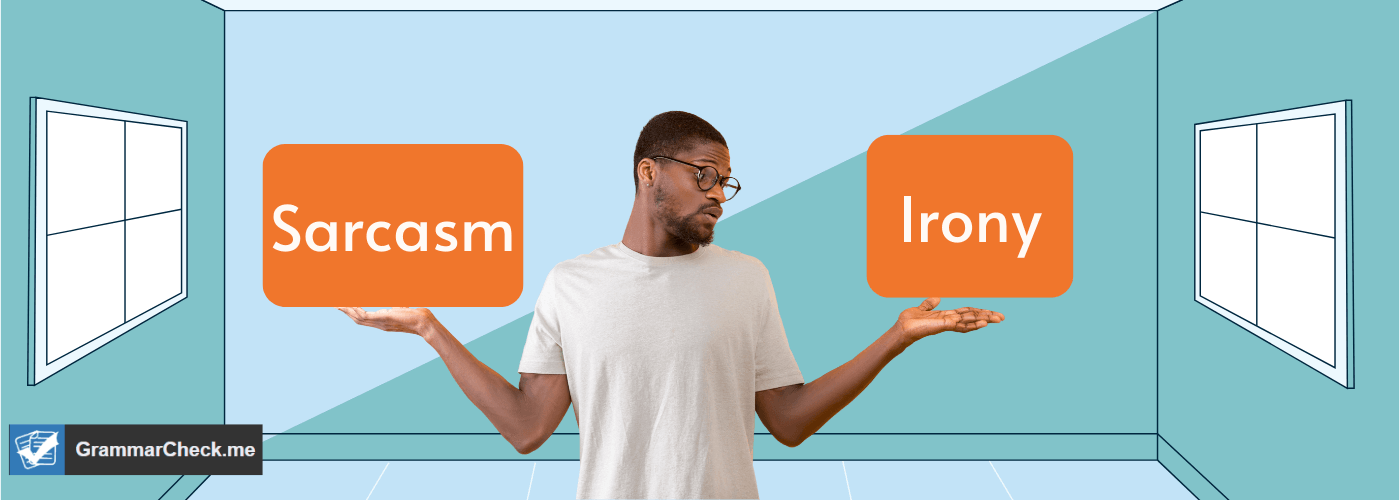
Irony vs Sarcasm Learn The Difference Grammar Check
Irony vs. Satire vs. Sarcasm September 29, 2017 - At times, people describe situations or events as ironic but they also say things in a satirical or sarcastic manner. This often causes confusion among people on whether to use irony, satire, or sarcasm to describe a particular statement or situation.
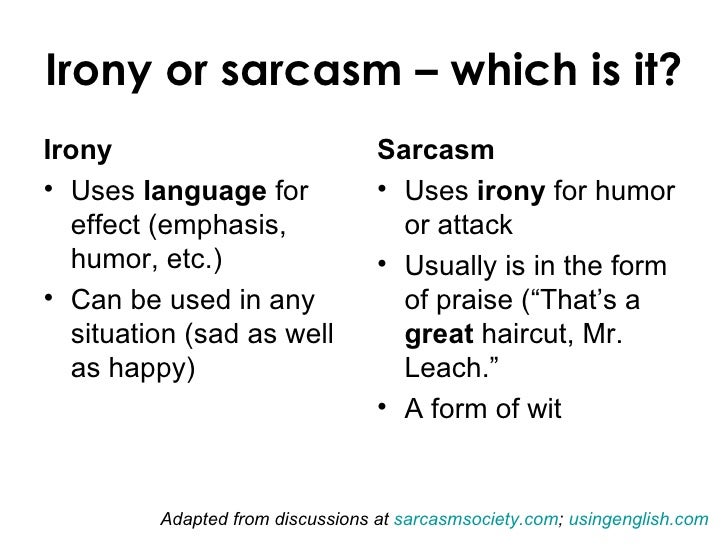
Irony Or Sarcasm Which Is It
Oct 20, 2023. 9. The two terms, sarcasm and irony, are often used interchangeably, especially in casual conversations. However, they possess distinct characteristics. While both convey contrasts in meanings, sarcasm is more caustic and directly mocking, whereas irony reveals an unexpected twist or difference between appearance and reality.

Irony vs Sarcasm 5 Big Differences (With Examples) SocialLifeTips
Satire is a literary or artistic form mocking societal norms; sarcasm is a form of verbal irony intended to mock or convey contempt. Key Differences Satire is a technique employed by writers and artists to expose and criticize societal foolishness and corruption, often through humor, irony, and exaggeration.
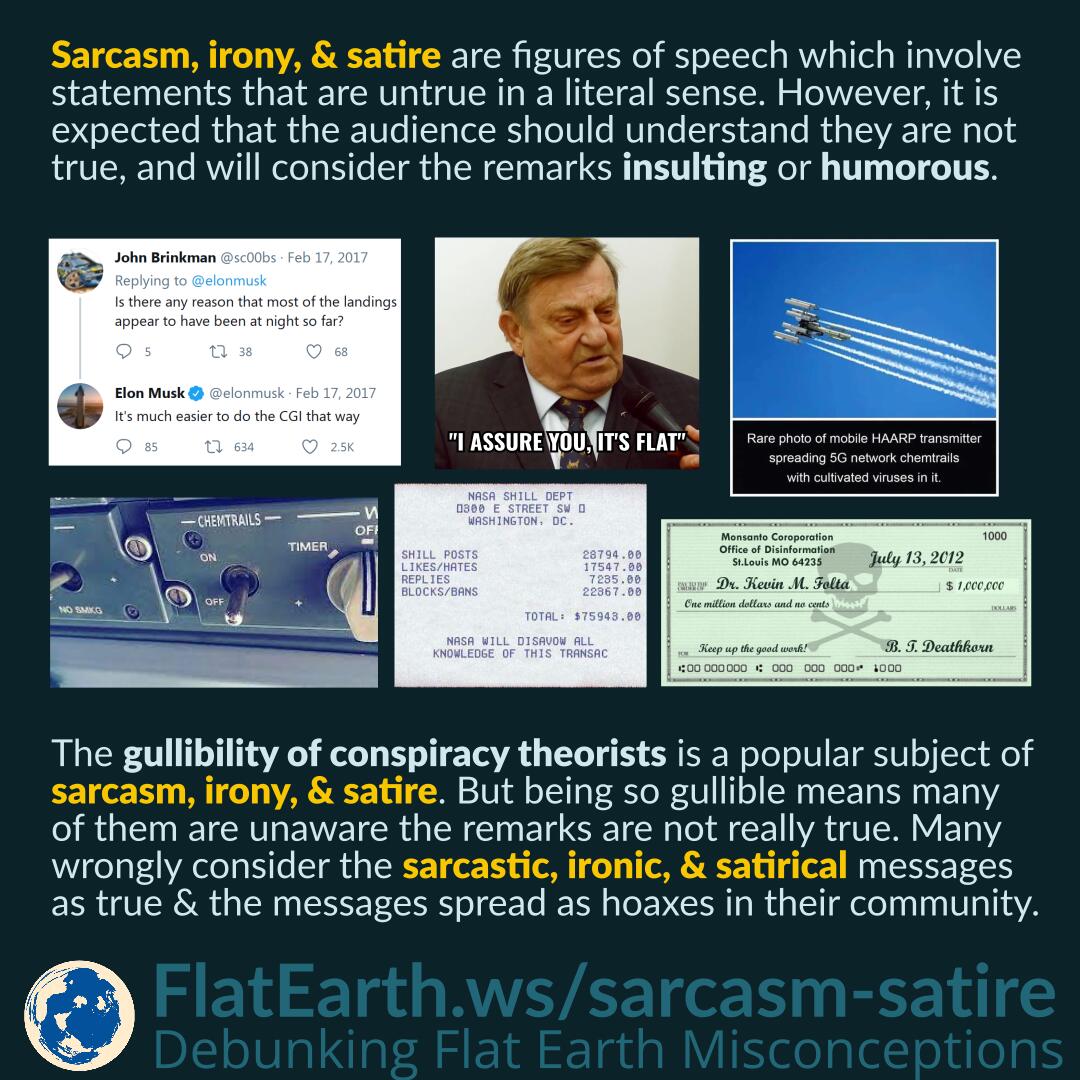
Sarcasm, Irony, Satire FlatEarth.ws
satire [ sat-ahy uhr ] show ipa noun the use of irony, sarcasm, ridicule, or the like, to expose, denounce, or deride the folly or corruption of institutions, people, or social structures: The success of the production stems from its balance of affectionate comedy and well-observed satire.
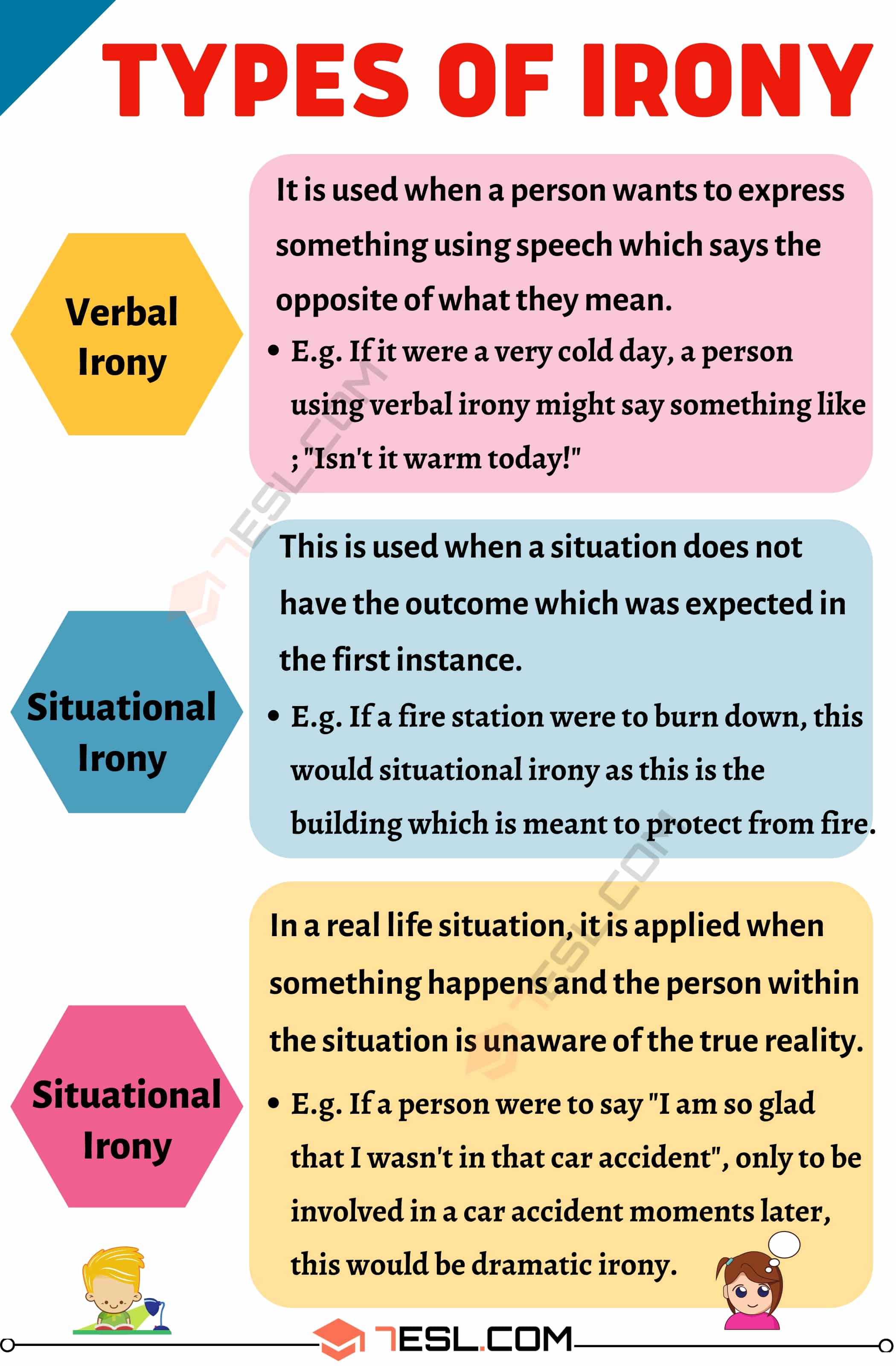
Irony Definition And 03 Types Of Irony With Useful Examples 7 E S L
Irony means saying the opposite of what is meant. Sarcasm is a type of irony that is stingy, taunting and unpleasant. Satire is the use of irony and sarcasm to criticize people's behavior or their ideas. What is the meaning of Irony? In simple words, Irony is the way of saying the opposite of what you actually mean.

"Irony" vs. "Sarcasm" in English LanGeek
Step Action Novel Insight Risk Factors; 1: Define verbal irony and sarcasm: Verbal irony is when a speaker says something but means the opposite, often for humorous or dramatic effect. Sarcasm is a form of verbal irony that is intended to mock or insult someone.: None: 2: Differentiate between verbal irony and sarcasm: Verbal irony can be used for a variety of purposes, including humor, satire.

Circle of Sarcasm Everything You Need to Know TheMindFool
Sarcasm is harsh and can be painful for people. It is a destructive type of criticism. Two people are involved in a sarcastic conversation. Satire is a polite way of telling people about their mistakes. It is a constructive type of criticism. Sarcasm is a taunt or comment that is used to make fun of someone. It can be excruciatingly unpleasant.
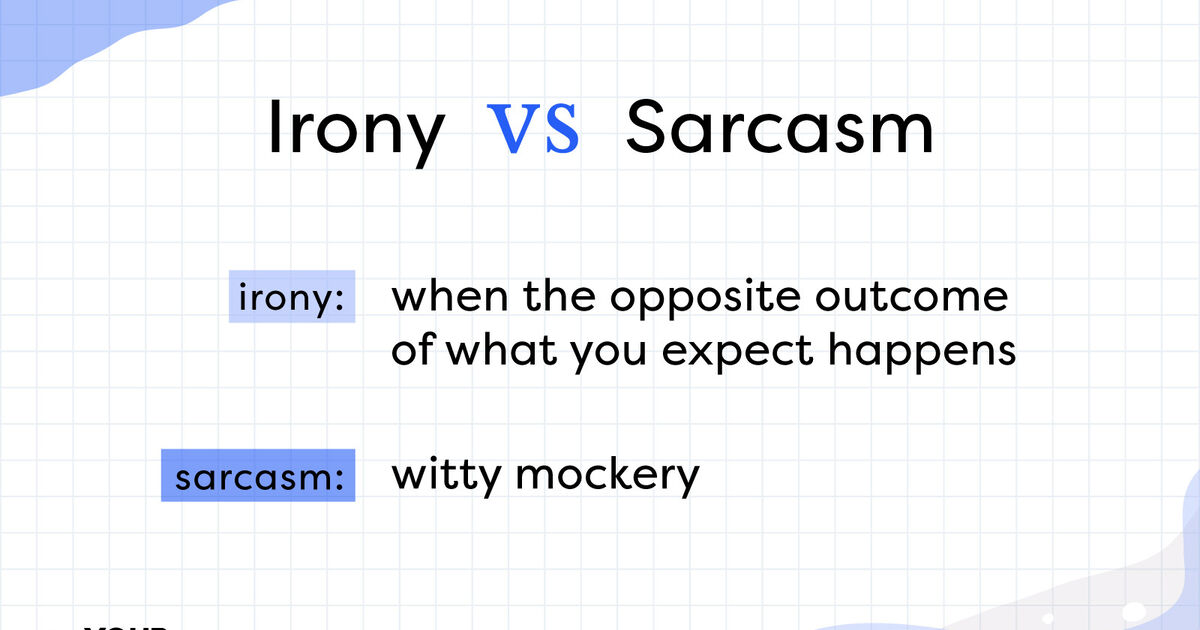
Irony vs. Sarcasm Types and Differences YourDictionary
One of the key features of satire is its use of irony, which involves saying one thing but meaning the opposite. This can be seen in the use of sarcasm, hyperbole, and other rhetorical devices to create a sense of absurdity or exaggeration.